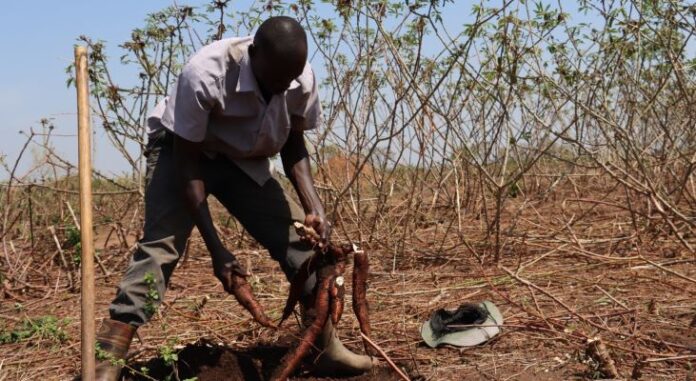
Farmer Field School, a program initiated about four years ago in Uganda by Action Against Hunger, a global humanitarian organization, is now building self-reliance communities in the East African country thanks to its ripple effect among learners.
To achieve this, the organization through the European Union Emergency Trust Fund (EUTF) Response to Increased Demand in Government Service and Creation of Economic Opportunities in Uganda (RISE) Project has been working with partner organizations to teach agriculture skills and help incoming refugees learn how to improve food security.
“We launched EUTF RISE project that introduced Farmer Field Schools, an inclusive cooperative of farmers that come together to share resources, teach skills, and reach personal goals,” said the organization in a statement.
In this, Action Against Hunger oversees each Farmer Field School and distributes any necessary tools or resources that farmers need to succeed. After a few years, each farmer “graduates” to a new level, where they’re encouraged to set even higher goals and inspire others around them.
One of the beneficiaries, Jimmy Dratele, a member of a Farmer Field School in the Terego District, received hoes, seeds, pesticides, and other key materials from Action Against Hunger to kick-start his farm. For him, starting his business also meant building self-reliance.
“It gave me knowledge,” he says. “I was taught financial discipline. I managed to buy a motorcycle and a small grinding mill, and now there is growth in my work.”
Ripple effect
Jimmy employs his neighbors when he has too much on his hands, helping them to develop skills and earn income. The Farmer Field Schools lead to a ripple effect: one student teaches another, and then another, and the skills are multiplied across the entire community.
Since 2019, nearly 6,000 farmers in more than 150 Farmer Field Schools have been directly impacted by Action Against Hunger’s program. Herbert Jurua, an Agricultural Officer in the Terego District, says that the schools made a huge impact after bringing new agricultural technologies to communities. They also supplied tools, seeds, planting materials, and improved breeds of animals, free of charge.
“What we are looking at here is household food security and household income. Those are two areas we seek to address in our sector,” he says. “At the end of the day, a number of households felt secure.”
The schools help with more than agricultural development. Farmers also learn about how to manage and care for their livestock, which is deeply intertwined with farming.
The project has provided 480 oxen and 134 ox plows to the groups, which helps them to plow their fields, transport goods to the market, and more.
Cultivating an acre using hand hoes takes about two months—with an ox plow, community members can cultivate a field twice that size in just one to two weeks.
400 acres
Throughout the Adjumani district, members of the Farmer Field School cultivated 140 acres last year. This year, despite little rain, the farmers predict they will harvest 400 acres in this district alone.
Not only has their production volume increased, but the community feels confident in self-reliance, sustainability, and independence from outside help. Even when one crop dies, they can feed their children without worrying about continuous production.
Loyce Afulu, a member of the Farmer Field School in Yumbe District, says that her mind was awakened once she started learning farming techniques from other community members and tilled her own farm at home with the help of her neighbors.
Techniques included setting up solar-powered irrigation systems, tilling the land, and using ox-ploughs to maximize land usage. She was given two sacks of cassava cuttings and planted hers in her garden. Before she knew it, the cuttings sprouted, and then grew into something beautiful.
“The project has helped us, it has given me strength,” she said. “It has inspired me to have a target. My goal is to be an example to the people of Ariwa, especially my village. The training I received transformed my life.”








